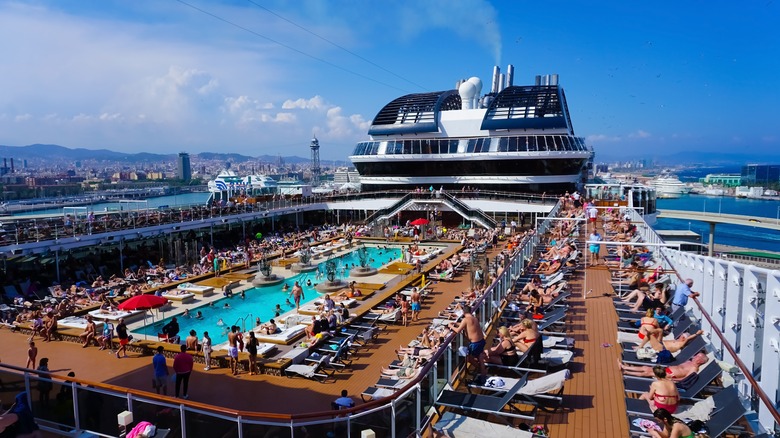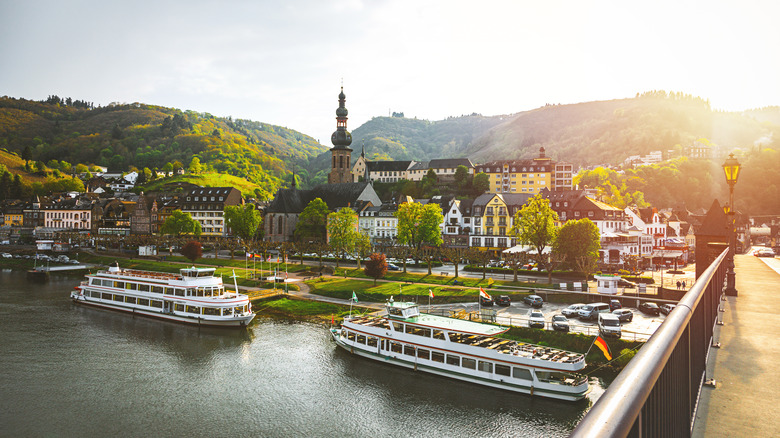Do you fancy sailing the high seas or floating along gentle waterways? Hitting up blockbuster destinations or discovering lesser-known ports? If you’re heading to Europe, one of the best ways to explore multiple destinations is by taking a cruise. Both ocean and river cruises are abundant on the continent. So how do you choose?
The most important consideration is usually the cruise route. Ocean cruises tend to stop in major ports along the coast, perfect for first-time visitors to Europe. Cruises around the Mediterranean are popular, with major cruise lines offering a range of itineraries covering the Greek islands, Italy, Spain, and more. On an ocean cruise, you can also visit the Baltic ports, Scandinavia, and the British Isles.
On the other hand, river cruises often stop in smaller towns, though many pass through large inland cities like Vienna and Budapest. If that’s more your jam or you’ve been to Europe before, this kind of cruise is a great option. Danube River cruises tend to be the most popular, but there are also cruises on the Rhine and through France, the Netherlands, and Belgium.
Cruise excursions

On an ocean cruise, you usually dock at a port and take a bus to a major city or attraction nearby. There are upsides and downsides to cruise excursions: transfer times cut down on your time at the actual attraction, and the tours are usually very crowded. Excursions are not usually included in the price of ocean cruises, and they can be pretty pricey. However, the payoff is seeing bucket-list monuments like Rome’s Colosseum or the Acropolis in Athens.
On a river cruise, you walk off the ship directly, avoiding long lines and time spent on a bus. Most stops on river cruises include a walking tour, but many lines also offer other activities. A cruiser in Reddit’s r/Cruise forum wrote about visiting a winery, a cheese farm, and a castle on their river cruise. Excursions are usually included in the price of a river cruise.
Now, we want to address what most of you are probably thinking. Traditionally, river cruises are seen as a haven for retirees. On Reddit’s r/Cruise forum, one poster writes that excursions on river cruises tend to be “very, very slow” because of the older participants. However, some companies are trying to kick that reputation and attract a younger crowd. Avalon, for example, offers different types of excursions — active, discovery, and classic. Fitter participants might go for a hike, and those looking for a more leisurely experience can tour a museum.
Amenities and prices

Ocean cruise ships are much bigger than riverboats. An ocean-going ship can have thousands of passengers; riverboats usually have no more than 250, often fewer. Blogger The Sophisticated Life writes that cabins on riverboats tend to be smaller than those on ocean cruises, and the overall experience on the river is more intimate.
In terms of amenities, ocean cruises have much more to offer. Traditionally, river cruises have had cabins, a restaurant or two, and not much more. As one poster in the r/Cruise forum on Reddit puts it, “The ship is just your floating hotel.” Ocean cruises, meanwhile, are floating resorts. They offer guests swimming pools, gyms, spas, theatres, casinos, shops, and multiple restaurants serving food from around the world. River cruises are much more sedate.
Last but certainly not least, you’ll want to consider the price. The base fare of a river cruise tends to be more than that of an ocean cruise. However, the price of river cruises usually include shore excursions, some drinks, and Wi-Fi, while ocean cruises often don’t. These extras can add up, so price your package carefully. Overall, river cruises are quieter and stop at smaller ports. Ocean cruises take you to major attractions and offer non-stop entertainment.

